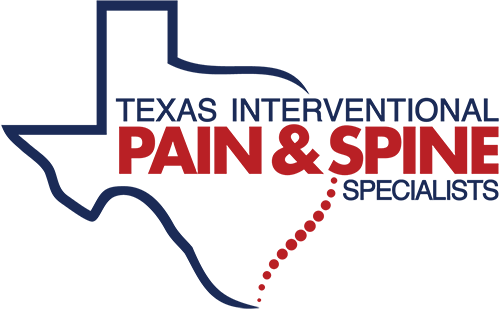Pain management specialists are dedicated to assisting individuals in finding relief from their pain and improving their overall quality of life. This way, different treatments are available for alleviating pain, including physical therapy, medications, and interventional procedures. Whether your symptoms are acute, chronic, or a combination of the two, make an appointment right away to take the first step toward a pain-free and more comfortable life.
Medication management
Medication management is an integral part of healthcare, with the correct medications offering the potential to effectively manage chronic conditions and reduce the need for more invasive treatments.
Analgesics are often the first line of defense. These medications block pain pathways in the body, stopping pain signals from reaching the brain. Common analgesics include ibuprofen, acetaminophen, and codeine.
Nonsteroidal anti-inflammatory drugs (NSAIDs) are also often used for this. These drugs work by calming pain and reducing inflammation. NSAIDs can treat chronic conditions such as rheumatoid arthritis, osteoarthritis, and migraines. Common NSAIDs include ibuprofen, naproxen, and aspirin.
By taking medications, you can help to reduce the pain associated with chronic conditions, allowing you to manage your day-to-day activities better.
Common side effects may include nausea, dizziness, drowsiness, and constipation, while more severe side effects can occur when medications interact. Therefore, it is always best to talk to your doctor before taking any new medications to ensure that there are no potential interactions that could be dangerous.
Interventional Procedures
Interventional Procedures are an important part of modern healthcare that can provide a range of treatments and pain relief for many different conditions. These treatments are safe and minimally invasive, allowing quick recovery and improving patient outcomes. These are commonly used for the treatment of pain, as well as for diagnostic purposes.
These include spinal injections, nerve blocks, joint injections, radiofrequency ablation, and epidurals. These treatments are performed by a qualified Texas interventional pain & spine specialist and can help reduce pain, improve mobility, and improve the overall quality of life.
They offer several significant benefits to patients, including reduced need for medications, improved mobility, and enhanced quality of life. Additionally, these treatments can be performed quickly and conveniently in an outpatient setting, allowing for quicker recovery times.
Common risks include infection, nerve damage, and bleeding. The risks of these procedures can also change depending on the kind of procedure being done. Therefore, discussing any system’s risks with your physician before beginning treatment is important.
Physical Therapy Physical
Physical therapy is a type of treatment that uses physical interventions to treat conditions or injuries instead of chemical interventions. It can help alleviate pain and improve flexibility, range of motion, and strength. They use techniques such as massage, exercise, heat and cold therapy, and ultrasound.
The advantages of increased function are decreased pain and improved quality of life, and it can also help to reduce the need for surgery or other medical interventions.
Risks can include soreness, fatigue, or an increased risk of injury. However, it is important to remember that physical therapy is typically considered safe when performed under the guidance of a trained and licensed therapist.
Other Alternative Therapies
Alternative therapies offer a different approach to health and well-being than traditional medical settings. Common types include acupuncture, yoga, and herbal remedies. These therapies can provide various physical and mental health benefits but also have certain risks.
Acupuncture is an ancient Chinese practice that involves inserting tiny needles into the body at specific points. Yoga is a traditional discipline that combines physical poses, breathing exercises, and meditation to enhance both physical and mental health. Herbal remedies use natural ingredients like plants, roots, and herbs to treat various health conditions.
They have many benefits for both physical and mental health. While yoga can improve flexibility and lower stress, acupuncture can help with pain reduction. The immune system can be strengthened, and many conditions can be treated with herbal remedies.
They have a lot of potential advantages, but some risks need to be considered. For example, acupuncture can cause bruising, swelling, and nerve damage if performed incorrectly, while some herbal remedies can interact with certain medications. Therefore, consult with a qualified health professional before embarking.
When to See a Pain Management Doctor
Consulting a specialist may be the best solution if you have chronic pain not relieved by traditional therapies. These specialists are experienced in diagnosing and treating chronic and acute pain conditions and may be able to provide more effective chronic migraine treatments than your general practitioner. Don’t continue to suffer – take the initiative to find relief.
Signs that you may need to visit a pain management doctor include:
- Pain that lasts more than three months
- Pain that affects your day-to-day activities
- Pain that interferes with your sleep
- Pain that is not responding to conventional treatments
- Other symptoms, such as fatigue, depression, or anxiety, accompany the pain.
It is crucial to schedule an appointment immediately if you exhibit any of these symptoms.
Concluding Remarks.
The role of a pain management doctor is to help patients cope with their chronic pain safely and effectively. Through medications, physical therapy, lifestyle modifications, and other treatments, the doctor works with the patient to develop an individualized treatment plan to help them manage their pain and live happier and more productive lives. They are committed to providing quality care, education, and support to ensure patients live free of pain and discomfort.
